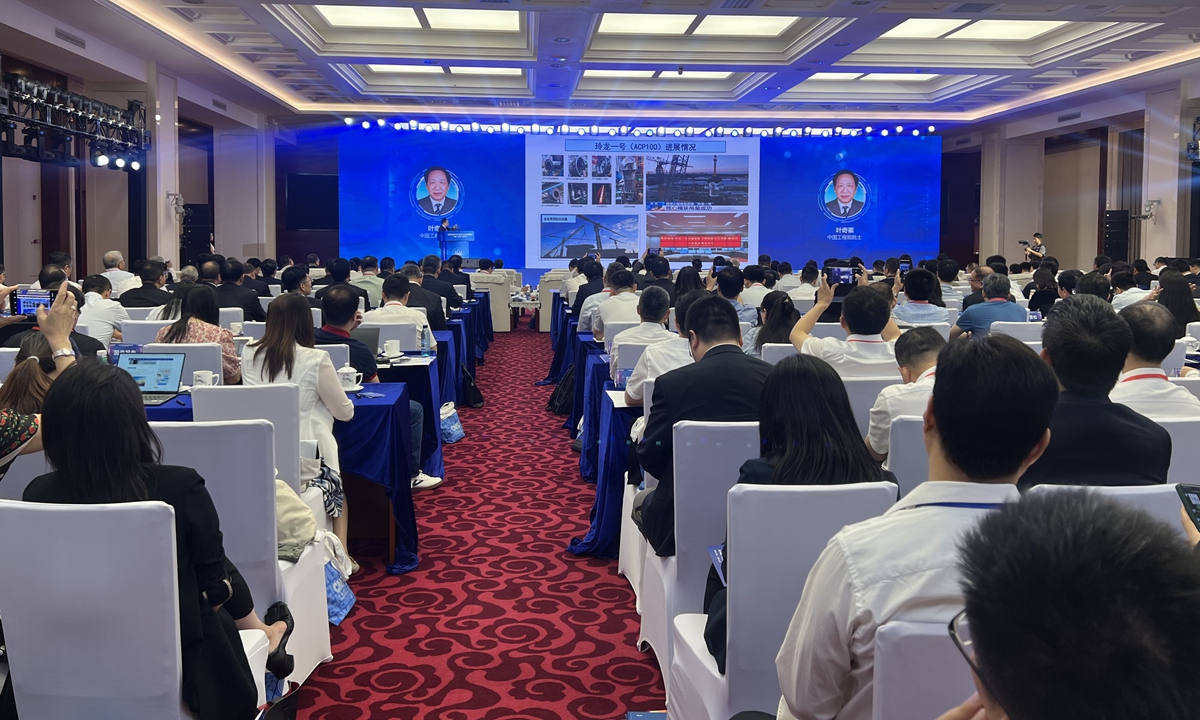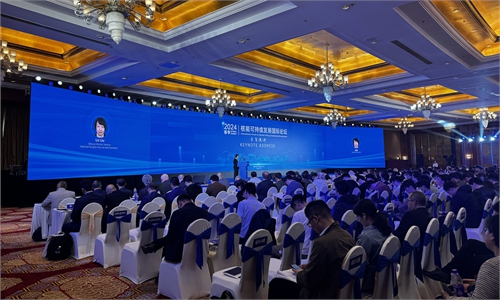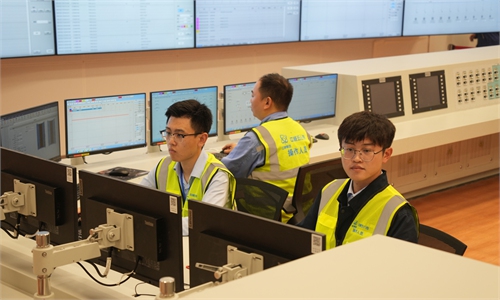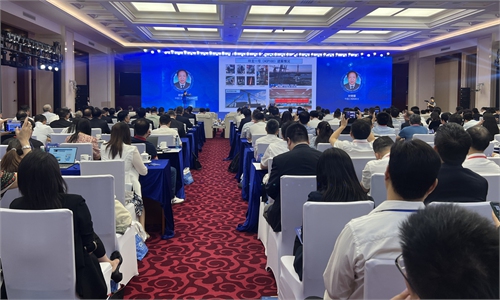China ranks among best in global nuclear safety, advances AI integration into nuke power operation: forum

Ye Qizhen, an academician at the Chinese Academy of Engineering, speaks at a forum on China's nuclear power development held in Beijing on July 10, 2024. Photo: Fan Anqi/GT
The overall safety level of nuclear power in China ranks among the best in the world, and China is working on integrating artificial intelligence (AI) and big data into the application of nuclear power plants to ensure safer and more reliable nuclear power operations, industry insiders said at a forum held in Beijing on Wednesday.
Ye Qizhen, an academician at the Chinese Academy of Engineering, said at the forum that China's operational nuclear units have maintained safe and stable operation, with no International Nuclear and Radiological Event Scale (INES) level 2 or above operational incidents in the last 30 years. In 2023, there were no operational incidents of INES level 1 or above, placing China's operational safety level among the best in the world, Ye noted.
The INES is a tool for communicating the safety significance of nuclear and radiological events to the public, developed by the International Atomic Energy Agency (IAEA). Under the scale, events are rated on seven levels, with level 1 being a slight anomaly and level 7 rated as a major accident with widespread health and environmental effects, according to the IAEA website.
Ye said the radiation levels around Chinese nuclear power plants have always remained low, without having any adverse environmental impacts. Meanwhile, the emissions from nuclear power plants are more than two orders of magnitude below the national standard limits. Neither occupational disease hazards nor cases of occupational overexposure have occurred.
"Nuclear safety is the lifeline of nuclear development and the key to ensuring a stable and successful implementation of our country's three-step nuclear energy development strategy," Liu Lu, deputy director of the National Nuclear Safety Administration, said as she delivered a speech at the forum.
To better address the challenges, China is spearheading advancements in a number of innovations, including the development of accident tolerant fuels, and integrating cutting-edge technologies and robust safety protocols into its nuclear power industry.
AI will play a pivotal role in enhancing nuclear safety and efficiency in China, industry insiders revealed at Wednesday's event.
They said AI applications are being integrated into nuclear power plants to guide operator actions, optimize operational procedures, and facilitate rapid response to emergencies. This includes automated monitoring of critical systems and the deployment of robots for maintenance tasks in radiation-prone areas, significantly reducing human exposure.
Additionally, China is harnessing big data to create comprehensive systems that consolidate operational data from multiple nuclear plants. This enables proactive management by identifying patterns and anomalies, thereby enhancing overall operational reliability and safety measures.
Scholars at the forum also shared insights on the digital transformation of the nuclear power industry, which includes the implementation of intelligent operation control systems and advanced monitoring technologies. This involves leveraging image-based inspections and specialized robotics for surveillance and maintenance management, ensuring continuous and effective oversight of plant operations.
Addressing environmental concerns, China is pioneering waste management solutions tailored to nuclear facilities. Researches are focusing on technologies to remove tritium from wastewater, ensuring minimal environmental impact.
"Nuclear power plants generate waste with 99 percent classified as low-to-intermediate level waste. High-level waste is managed through glass encapsulation, triple-engineered barriers, and burial at depths of 400-500 meters underground, strictly isolated from the biosphere," Ye elaborated.
Previously in March, foreign media sources hyped that in 2022, Chinese nuclear power plants released wastewater containing tritium at levels up to nine times higher than the amount expected to be found in the planned annual discharge from Japan's crippled Fukushima Daiichi complex.
Scholars at the seminar refuted such claims, noting that the treated wastewater China released and the radioactive water dumped by Japan is "fundamentally different."
They also told the Global Times that China has proposed to Japan a technology specifically designed for tritium wastewater treatment. But due to the great amount of waste and the high costs, Japan eventually chose what was the simplest and cheapest method for them - to dump it into the sea.



